Artist:
Carlo Actis Dato & Laura Culver (Duo + Due)
Title:
Dune
Year Of Release:
1991
Label:
Splasc(H) Records[CD H 354-2]
Genre:
Jazz, Free Improvisation
Quality:
FLAC (tracks + .cue,log)
Total Time: 74:10
Total Size: 399 MB(+3%)
WebSite:
Album Preview
Tracklist01. Cabo Verde (Actis Dato) - 6:12
02. Papaye (Actis Dato) - 5:29
03. Radetzky Tango (Actis Dato) - 5:50
04. Izmir (Actis Dato) - 7:54
05. Rogo di Streghe (Actis Dato) - 4:56
06. Toto' (Actis Dato) - 4:38
07. Muse Miste (Culver) - 7:22
08. Ketchup (Actis Dato) - 8:59
09. Gallinara (Actis Dato) - 4:39
10. Mar del Plata (Actis Dato) - 6:03
11. Carovana (Actis Dato) - 5:53
12. Saltimbanchi (Actis Dato) - 6:15
personnel : Carlo Actis Dato - bass clarinet, tenor saxophone, baritone saxophone
Laura Culver - cello, soprano saxophone, berimbau
Alex Rolle - percussion, xylophone
Massimo Barbiero - drums, marimba
Italian reed and woodwind king Carlo Actis Dato co-leads a group with cellist and soprano saxophonist Laura Culver that includes two more percussionists in the personages of Alex Rolle and Massimo Barbiero, who use marimbas and xylophones as well as drums. Over ten pieces that are supposedly improvisations, this quartet, or double duo as it were, manages to alter the languages of rhythm and melody as they relate to one another throughout the world. (But don't get any ideas, this is not world music in the marketing sense of the term.) The reason for the word "supposedly" comes into play on the very first track, "Cabo Verde," where sequences of baritone saxophone are blown toward rhythm patterns on both of the malleted instruments that respond in kind and are further sweetened by a cello playing in perfect counterpoint a fairly elaborate series of phrases that are repeated over and over again in a game of musical cat and mouse. Also, the long lines of Dato's bass clarinet are elegant as they dance with the deep sonance of Culver's cello on "Papaye." The longer the record plays, the more elaborate the scenarios become, with percussion instruments playing melodies that are externally harmonized by Dato and Culver before turning them on their head, changing their shape, and returning them as a folk dance ("Gallinara"). And through it all, the range of emotions is vulnerable, tender, and full of openness. The elegance of this music suggests that this cannot be improvised; the listener can let that go and drift into the quiet majesty of these gorgeous "songs."~ Thom Jurek
Exact Audio Copy V1.5 from 20. February 2020
EAC extraction logfile from 8. September 2020, 20:23
Carlo Actis Dato / Laura Culver / Dune
Used drive : PHILIPS CDRW/DVD SCB5265 Adapter: 1 ID: 0
Read mode : Secure
Utilize accurate stream : Yes
Defeat audio cache : Yes
Make use of C2 pointers : No
Read offset correction : 6
Overread into Lead-In and Lead-Out : No
Fill up missing offset samples with silence : Yes
Delete leading and trailing silent blocks : No
Null samples used in CRC calculations : Yes
Used interface : Native Win32 interface for Win NT & 2000
Gap handling : Appended to previous track
Used output format : User Defined Encoder
Selected bitrate : 1024 kBit/s
Quality : High
Add ID3 tag : No
Command line compressor : C:\Program Files (x86)\Exact Audio Copy\Flac\flac.exe
Additional command line options : -8 -V -T "ARTIST=%artist%" -T "TITLE=%title%" -T "ALBUM=%albumtitle%" -T "DATE=%year%" -T "TRACKNUMBER=%tracknr%" -T "GENRE=%genre%" -T "PERFORMER=%albuminterpret%" -T "COMPOSER=%composer%" -T "ALBUMARTIST=%albumartist%" -T "DISCNUMBER=%cdnumber%" -T "TOTALDISCS=%totalcds%" -T "TOTALTRACKS=%numtracks%" -T "COMMENT=%comment%" %source% -o %dest%
TOC of the extracted CD
Track | Start | Length | Start sector | End sector
---------------------------------------------------------
1 | 0:00.43 | 6:12.00 | 43 | 27942
2 | 6:12.43 | 5:29.37 | 27943 | 52654
3 | 11:42.05 | 5:49.38 | 52655 | 78867
4 | 17:31.43 | 7:53.50 | 78868 | 114392
5 | 25:25.18 | 4:56.00 | 114393 | 136592
6 | 30:21.18 | 4:37.62 | 136593 | 157429
7 | 34:59.05 | 7:21.38 | 157430 | 190542
8 | 42:20.43 | 8:58.50 | 190543 | 230942
9 | 51:19.18 | 4:38.50 | 230943 | 251842
10 | 55:57.68 | 6:02.50 | 251843 | 279042
11 | 62:00.43 | 5:53.00 | 279043 | 305517
12 | 67:53.43 | 6:15.00 | 305518 | 333642
Track 1
Filename Z:\Music\Carlo Actis Dato , Laura Culver - Dune (1991) [FLAC] {CD H 354-2}\01 - Cabo Verde.wav
Pre-gap length 0:00:02.57
Peak level 83.4 %
Extraction speed 1.4 X
Track quality 100.0 %
Test CRC E53443B1
Copy CRC E53443B1
Accurately ripped (confidence 1) [9F1D25CE] (AR v2)
Copy OK
Track 2
Filename Z:\Music\Carlo Actis Dato , Laura Culver - Dune (1991) [FLAC] {CD H 354-2}\02 - Papaye.wav
Peak level 73.1 %
Extraction speed 1.6 X
Track quality 100.0 %
Test CRC 5551F356
Copy CRC 5551F356
Accurately ripped (confidence 1) [563FB649] (AR v2)
Copy OK
Track 3
Filename Z:\Music\Carlo Actis Dato , Laura Culver - Dune (1991) [FLAC] {CD H 354-2}\03 - Radetzky Tango.wav
Peak level 82.4 %
Extraction speed 1.8 X
Track quality 100.0 %
Test CRC 00D2571B
Copy CRC 00D2571B
Accurately ripped (confidence 1) [2502EFBC] (AR v2)
Copy OK
Track 4
Filename Z:\Music\Carlo Actis Dato , Laura Culver - Dune (1991) [FLAC] {CD H 354-2}\04 - Izmir.wav
Peak level 91.5 %
Extraction speed 2.0 X
Track quality 100.0 %
Test CRC 293D319A
Copy CRC 293D319A
Accurately ripped (confidence 1) [18209B6E] (AR v2)
Copy OK
Track 5
Filename Z:\Music\Carlo Actis Dato , Laura Culver - Dune (1991) [FLAC] {CD H 354-2}\05 - Rogo Di Streghe.wav
Peak level 69.5 %
Extraction speed 2.1 X
Track quality 100.0 %
Test CRC A4D1A8B8
Copy CRC A4D1A8B8
Accurately ripped (confidence 1) [6DC72D65] (AR v2)
Copy OK
Track 6
Filename Z:\Music\Carlo Actis Dato , Laura Culver - Dune (1991) [FLAC] {CD H 354-2}\06 - Toto.wav
Peak level 91.2 %
Extraction speed 2.2 X
Track quality 100.0 %
Test CRC 30FA0A94
Copy CRC 30FA0A94
Accurately ripped (confidence 1) [68F27669] (AR v2)
Copy OK
Track 7
Filename Z:\Music\Carlo Actis Dato , Laura Culver - Dune (1991) [FLAC] {CD H 354-2}\07 - Muse Miste.wav
Peak level 58.9 %
Extraction speed 2.4 X
Track quality 100.0 %
Test CRC 28BC014B
Copy CRC 28BC014B
Accurately ripped (confidence 1) [82A8E73A] (AR v2)
Copy OK
Track 8
Filename Z:\Music\Carlo Actis Dato , Laura Culver - Dune (1991) [FLAC] {CD H 354-2}\08 - Ketchup.wav
Peak level 63.9 %
Extraction speed 2.6 X
Track quality 100.0 %
Test CRC 1D6D79F7
Copy CRC 1D6D79F7
Accurately ripped (confidence 1) [A5F37619] (AR v2)
Copy OK
Track 9
Filename Z:\Music\Carlo Actis Dato , Laura Culver - Dune (1991) [FLAC] {CD H 354-2}\09 - Gallinara.wav
Peak level 66.6 %
Extraction speed 2.6 X
Track quality 100.0 %
Test CRC DE563AC5
Copy CRC DE563AC5
Accurately ripped (confidence 1) [EC97D86D] (AR v2)
Copy OK
Track 10
Filename Z:\Music\Carlo Actis Dato , Laura Culver - Dune (1991) [FLAC] {CD H 354-2}\10 - Mar Del Plata.wav
Peak level 99.9 %
Extraction speed 2.8 X
Track quality 100.0 %
Test CRC 4267BD76
Copy CRC 4267BD76
Accurately ripped (confidence 1) [006DD262] (AR v2)
Copy OK
Track 11
Filename Z:\Music\Carlo Actis Dato , Laura Culver - Dune (1991) [FLAC] {CD H 354-2}\11 - Carovana.wav
Peak level 57.0 %
Extraction speed 2.8 X
Track quality 100.0 %
Test CRC 49B12A5C
Copy CRC 49B12A5C
Accurately ripped (confidence 1) [DD4B0399] (AR v2)
Copy OK
Track 12
Filename Z:\Music\Carlo Actis Dato , Laura Culver - Dune (1991) [FLAC] {CD H 354-2}\12 - Saltimbanchi.wav
Peak level 68.1 %
Extraction speed 3.0 X
Track quality 100.0 %
Test CRC 85E9FDCB
Copy CRC 85E9FDCB
Accurately ripped (confidence 1) [803F64FC] (AR v2)
Copy OK
All tracks accurately ripped
No errors occurred
End of status report
---- CUETools DB Plugin V2.1.6
[CTDB TOCID: vZI3mDQCKojNGTwSmR9OWKPwbgE-] found
Submit result: vZI3mDQCKojNGTwSmR9OWKPwbgE- has been confirmed
Track | CTDB Status
1 | (2/2) Accurately ripped
2 | (2/2) Accurately ripped
3 | (2/2) Accurately ripped
4 | (2/2) Accurately ripped
5 | (2/2) Accurately ripped
6 | (2/2) Accurately ripped
7 | (2/2) Accurately ripped
8 | (2/2) Accurately ripped
9 | (2/2) Accurately ripped
10 | (2/2) Accurately ripped
11 | (2/2) Accurately ripped
12 | (2/2) Accurately ripped
==== Log checksum 54BF2E7426D15024CBAD111FD94FBC5C9674A4DC8BFCC51DEA68BE800E71EB92 ====
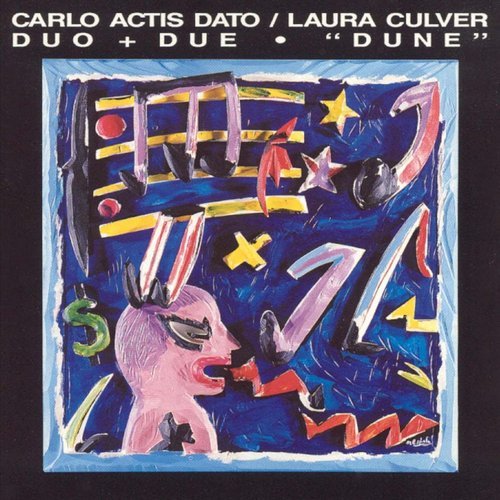
![Marius Neset - Time to Live (2026) [Hi-Res] Marius Neset - Time to Live (2026) [Hi-Res]](https://www.dibpic.com/uploads/posts/2026-02/1771945711_folder.jpg)

![Dino Siani - Mosaico Barocco (2026) [Hi-Res] Dino Siani - Mosaico Barocco (2026) [Hi-Res]](https://img.israbox.com/img/2026-02/20/56itjdvowkeoaf6sr37eyqjai.jpg)
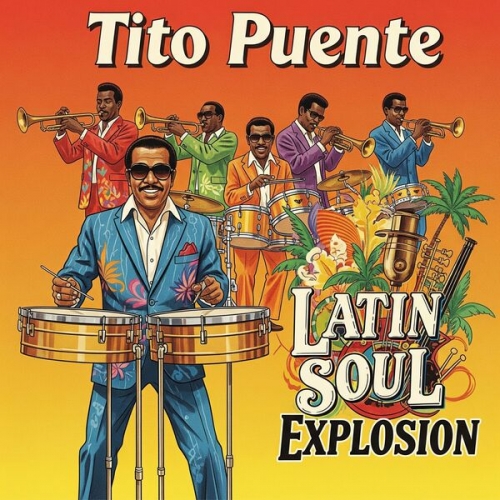
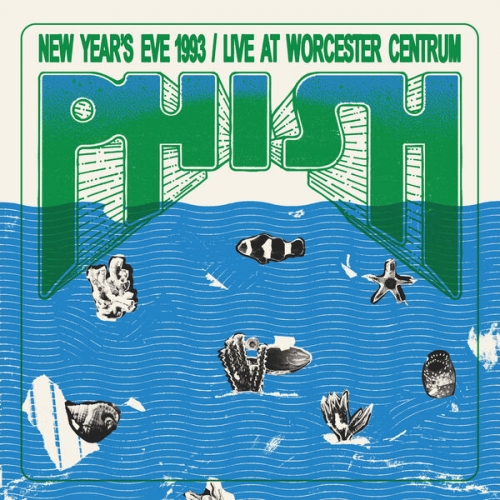
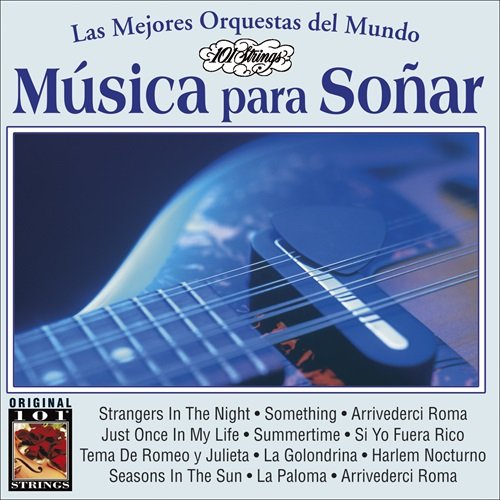
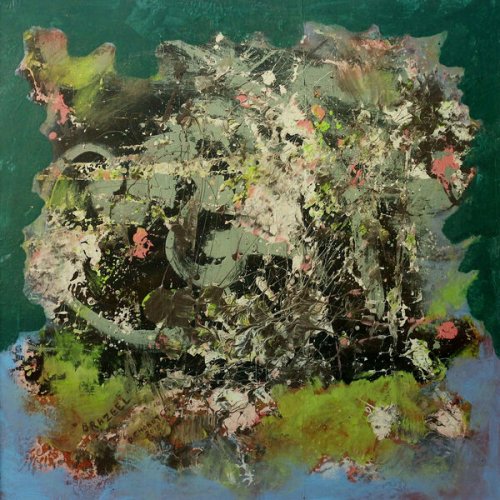
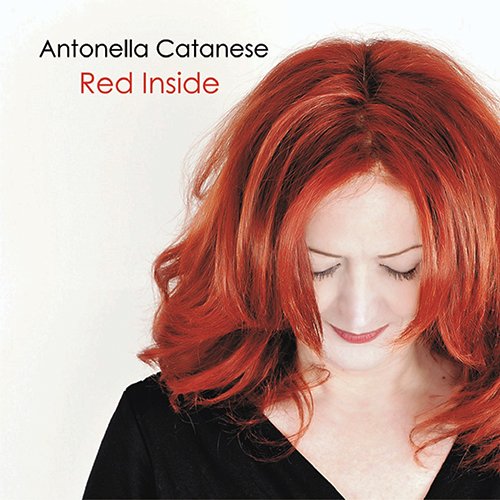
![Ex Novo Ensemble - OSVALDO COLUCCINO: Emblema (2018) [Hi-Res] Ex Novo Ensemble - OSVALDO COLUCCINO: Emblema (2018) [Hi-Res]](https://img.israbox.com/img/2026-02/22/ot6pocjri3hisq06iz4768yl5.jpg)